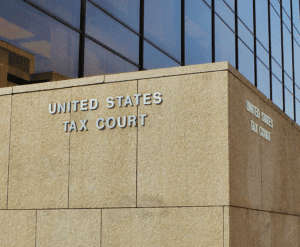
Coronavirus: IRS Issues People First Initiative
In the wake of the Coronavirus COVID-19 Pandemic, the IRS is providing guidance and support with regard to all compliance programs. On March 25, 2020 the IRS unveiled the People First Initiative. The program is designed to assist taxpayers who have installment agreements, Offers in Compromises, who have passed due returns that have not been filed, and other matters pending with the IRS.
Installment Agreements and Offers in Compromise
For taxpayers that currently have an installment agreement with the IRS any payment due between April 1, 2020 and July 15, 2020 are suspended. If a taxpayer is unable to comply with the terms of the installment agreement during this time frame, the installment agreement will not be in default. Taxpayers should note that interest will continue to accrue during that time on any unpaid balances. If a taxpayer has an overdue balance and is unable to pay the liability in full, they can still establish an installment agreement online.
The IRS is also taking steps to assist taxpayers who are in the Offer in Compromise (“OIC) process. For those with a pending OIC, taxpayers will be granted until July 15, 2020, to submit additional supporting information. Taxpayers that are currently making payments on an OIC can suspend those payments until July 15, 2020, but should note that interest will continue to accrue on those payments until they are made. If a taxpayer is in jeopardy of having their OIC returned for failure to file the 2018 or 2019 tax return, the taxpayer will have until July 15, 2020, to file those missing returns. If a taxpayer has not yet filed an OIC but has past due amounts, the IRS is still accepting those applications of an OIC for a taxpayer to assist in a fresh start for the taxpayer.
Passed Due Returns
During this time of financial hardship, the IRS has issued a reminder that taxpayers who have missing tax returns for past years may be due a refund. Filing now could provide the opportunity for those taxpayers to receive those refunds on the overdue tax years.
IRS Collection Activity
The IRS is suspending all automatic liens and levies and those that are initiated by revenue officers during this period. Revenue officers will continue to pursue high income non-filers and pursue other matters when necessary. Certifications to the State Department for delinquent taxpayers that cause the revocation of passports or the prevention of the taxpayer from renewing their passport will be suspended during this time. Taxpayers who may be subject to this action are being encouraged to consider an installment agreement or offer in compromise. Finally, during this time no new cases will be sent to private debt collectors.
Audits and Appeals
Generally, the IRS will not start a new audit during this time, but will if the specific matter warrants the action. The IRS is going to continue to work refund claims because they are time-sensitive matters. For audits that are currently on-going, the IRS will continue those audits if possible, without any in-person meetings, all of which have been suspended. If special circumstances warrant the opening of an audit the IRS will consider those matters when it is in the best interest of both parties. Appeals will continue to conduct appeals meetings, but will be suspending all in-person meetings.
Statute of Limitations
All cases that have a statute of limitations that may be expiring shortly will continue to be monitored and worked on by the IRS. In these cases where the statute may be in jeopardy taxpayers may have to agree to sign extensions on the statute of limitations. If the taxpayer does not agree to the extension, the IRS will most likely issues Notices of Deficiency in those cases to protect the government’s interest. If taxpayers do receive a Notice of Deficiency, the taxpayer needs to remember they must still file with the U.S. Tax Court by the 90 day deadline.

Taxpayers should remember that if they do receive a notice from the IRS then the taxpayer should respond to the correspondence. The IRS will continue to pursue those matters, and just because of the current pandemic taxpayers should not ignore IRS notices and not respond to them. As such, it is important for taxpayers to file tax returns or file extensions as soon as possible to begin the time frame for the IRS to begin collections if they are going to. If you fail to timely address a problem raised by the IRS, it may not be possible for an IRS tax attorney to correct the damage done. Contact Robb Longman today at (301) 291-5027 to schedule a phone consultation. Our firm’s IRS tax attorneys, based in Maryland (Bethesda, Rockville) and Washington, DC can help to resolve tax issues (COVID-19 or Coronavirus related or not) as efficiently as possible. Mr. Longman works with his tax clients to devise strategies to help those clients minimize their taxes in their transactions.

This Post Has 0 Comments